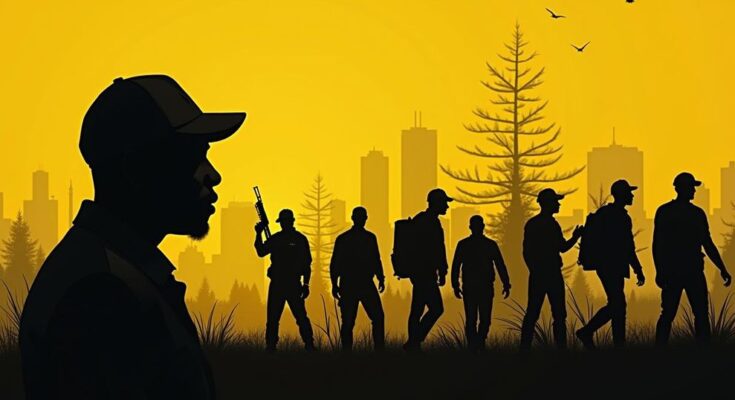Amnesty International calls for accountability from President Felix Tshisekedi of the DRC for ongoing human rights violations, citing governmental neglect in addressing these issues. The organization emphasizes the urgent need to lift the state of siege in certain provinces, protect journalists and activists, and ensure justice for victims of sexual violence, alongside international support for these initiatives.
Amnesty International has reiterated its demand for accountability from the President of the Democratic Republic of the Congo (DRC), Felix Tshisekedi, regarding the ongoing human rights violations occurring under his administration. The organization has raised concerns that President Tshisekedi has overlooked the alarming decline in human rights conditions during his leadership. This assertion was made in a report by Jean Mobert Senga, Amnesty International’s researcher focused on the DRC, following the President’s address to the UN General Assembly on September 25. Among the critical points highlighted in the report is the government’s failure to adequately uphold human rights amidst the current dire situation in the country, particularly in relation to allegations of armed group involvement in the eastern regions, allegedly supported by Rwanda. President Tshisekedi himself noted in his address, “[t]he resurgence of the M23 terrorist groups supported by Rwanda has caused an unprecedented humanitarian crisis,” and he called for targeted sanctions against Rwanda. Amnesty International has criticized the government’s handling of the human rights crisis, urging President Tshisekedi to lift the state of siege that has been in effect in North Kivu and Ituri since May 2021. The organization has called for an end to the intimidation and arbitrary detentions of journalists, activists, and political opponents, as well as for transparency in addressing cases of sexual violence within detention facilities. Mr. Mobert emphasized the government’s lack of progress in bringing both local and foreign perpetrators of international crimes to justice, stating, “Despite repeated calls for justice, the government has so far largely failed to bring both Congolese and foreign perpetrators of crimes under international law to justice. Powerful actors continue to operate with impunity, deepening the cycle of violence.” According to the latest data from the UN Office for Coordination of Humanitarian Affairs (OCHA), over 25.4 million citizens of the DRC are in need of humanitarian assistance, with more than six million people displaced internally due to the escalating conflict. The ongoing violence raises significant concerns regarding compliance with international human rights and humanitarian norms, including guarantees of freedom of movement and the right to personal liberty and security, obligations enshrined in the International Covenant on Civil and Political Rights (ICCPR). Additionally, the activities of Congolese soldiers and various militias targeting civilians may constitute serious violations of humanitarian law. Amnesty International has urged the international community, including political allies of President Tshisekedi such as the United States, South Africa, Angola, Belgium, and France, to hold the DRC government accountable for the prevailing human rights violations.
Human rights in the Democratic Republic of the Congo have faced intense scrutiny due to ongoing conflicts and the government’s response to them. The DRC has been plagued by violence, particularly in the eastern regions, where armed groups operate with alleged support from neighboring countries. This instability has resulted in a significant humanitarian crisis, with millions requiring assistance and numerous human rights violations reported. International organizations like Amnesty International are advocating for accountability from government officials and greater protection of human rights as the DRC confronts these challenges.
In conclusion, Amnesty International calls for accountability from President Felix Tshisekedi and the DRC government regarding the serious violations of human rights which have persisted during his leadership. The organization’s demands underline the need for immediate action to address the alarming human rights conditions in the country, particularly in light of the humanitarian crisis affecting millions. It stresses the importance of international pressure and cooperation in ensuring that human rights are upheld in the DRC.
Original Source: www.jurist.org




